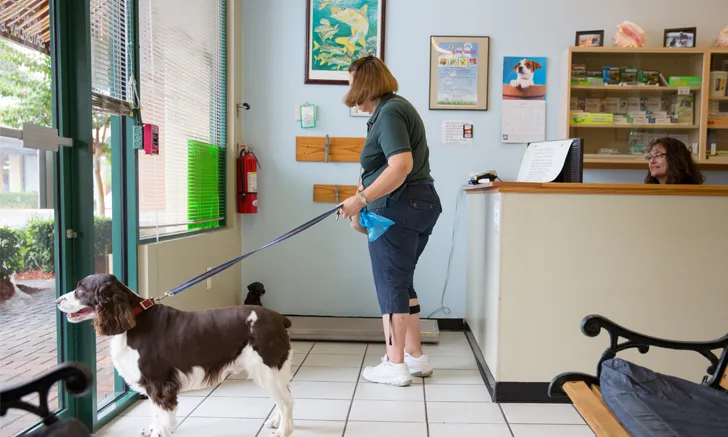
Dear Second Opinion,
A recent wellness exam (with a client who has been coming to our practice for years!) got awkward when she asked for a diet recommendation for her healthy, 2-year-old mixed-breed dog. I suggested a chicken-based adult maintenance kibble made by a well-known pet food company.
At first, she was quiet. But then she said that she had been doing research online, and that she no longer wants to feed commercial food made by any of the big pet food manufacturers because it’s all “garbage” and that veterinarians must only recommend those foods because we’ve been “brainwashed.” Instead, she is going to feed a homemade raw diet because it’s “natural,” and she thinks it will protect her pets from diseases that they would likely develop if they stayed on a commercial diet like the one I had recommended. Not wanting to upset her or potentially lose a good client, who has referred several other clients to our practice, I responded with something neutral and continued my exam.
Later, we talked about other topics including vaccines and heartworm prevention (which she keeps up to date) and she seemed to be OK with the visit, but I can’t stop thinking about it.
How could I have handled this better? I don’t want to lose a client, but I do want to be able to confidently convey my medical opinion over Dr. Google.
—Can't Compete with Dr. Google
Dear Can't Compete,
I have definitely been in that position! Sometimes a client says things I don’t agree with and I’m left wondering how to share my knowledge without creating barriers. You are definitely on the right track of being respectful, not wanting to lose a good client, and engaging in objective analysis of the situation.
A couple of ideas on what NOT to do in these situations:
Don’t try to convince the client to change their opinion. This is exhausting to you, and hardly ever works.
Don’t get defensive. That will cause the client to get defensive and shut down communication right away, and then the pet loses out on your care.
Don’t use scare tactics to manipulate the client into following your advice. That’s not nice.
A few ideas on what TO do in these situations:
Praise the client for caring enough to do the research. This is clearly an engaged client, she wants her pets to be healthy, and she is doing her best to make healthy choices for her pets.
Find common ground. You want her pets to be healthy; she wants her pets to be healthy. You are a team working together, and all opinions in the pet’s ‘healthcare team’ are important.
After the client has shared, ask for permission to share. Ask, “May I share what I know with you?” I often remind the client that she is paying for my opinion and I wouldn’t be doing my job if I didn’t share what I know. Lead in with “Here is what I know…”
Share your knowledge and concerns in an informative, respectful, objective way. Don’t attack or put down raw diets in a negative tone—simply share factual concerns about infectious disease and nutritional imbalances, and review the situations in which raw diets should not be used (ie, immune-compromised people or pets). The same goes for clients who ask about grain-free diets, essential oils, or other potentially controversial trends in pet ownership. This is the information your clients need from you, and you are doing your job by sharing it.
After you share your knowledge, respect the client’s decision. Provide whatever support you can. Ultimately, how to care for her pets is the client’s decision, and we are there to provide whatever veterinary support we can, even when we disagree with their decision.
Document your discussion in the medical record to cover yourself legally in case she decides to go ahead and feed raw against your medical recommendation.
Lastly, let it go. You showed up and did your best to be respectful and informative. Good job! That is all that matters. Now on to the next case.
Warmly,
Sarah Wooten